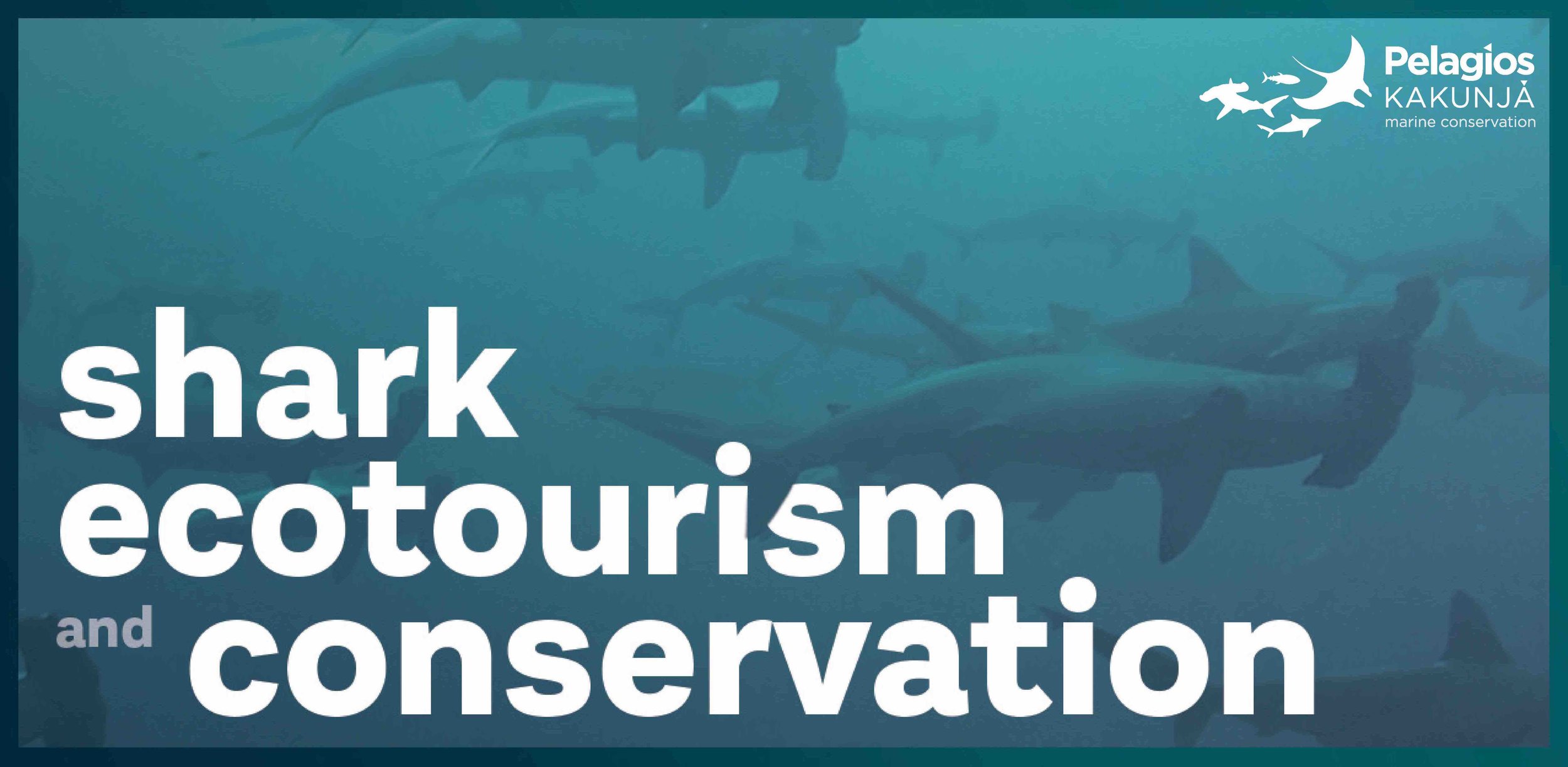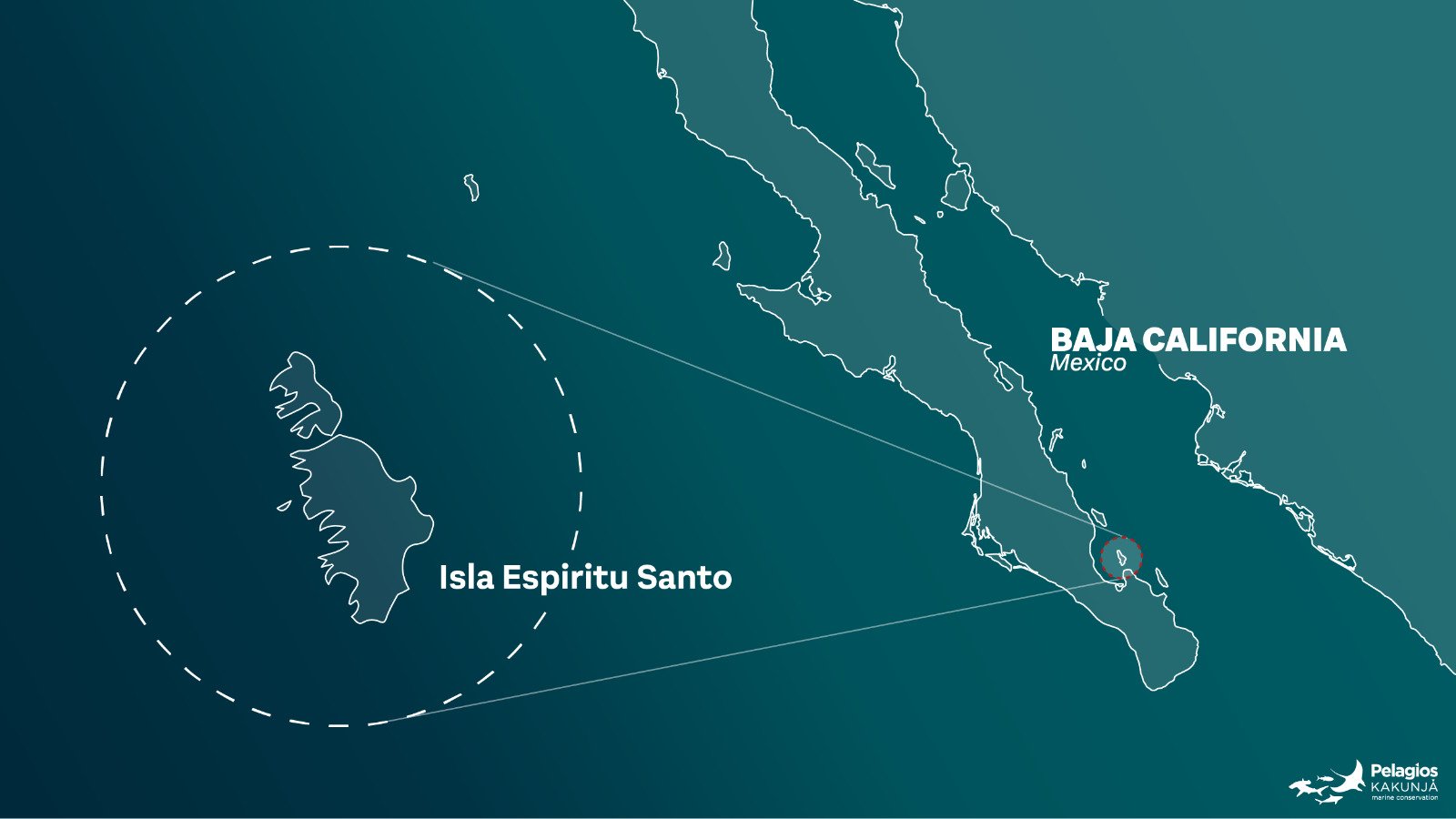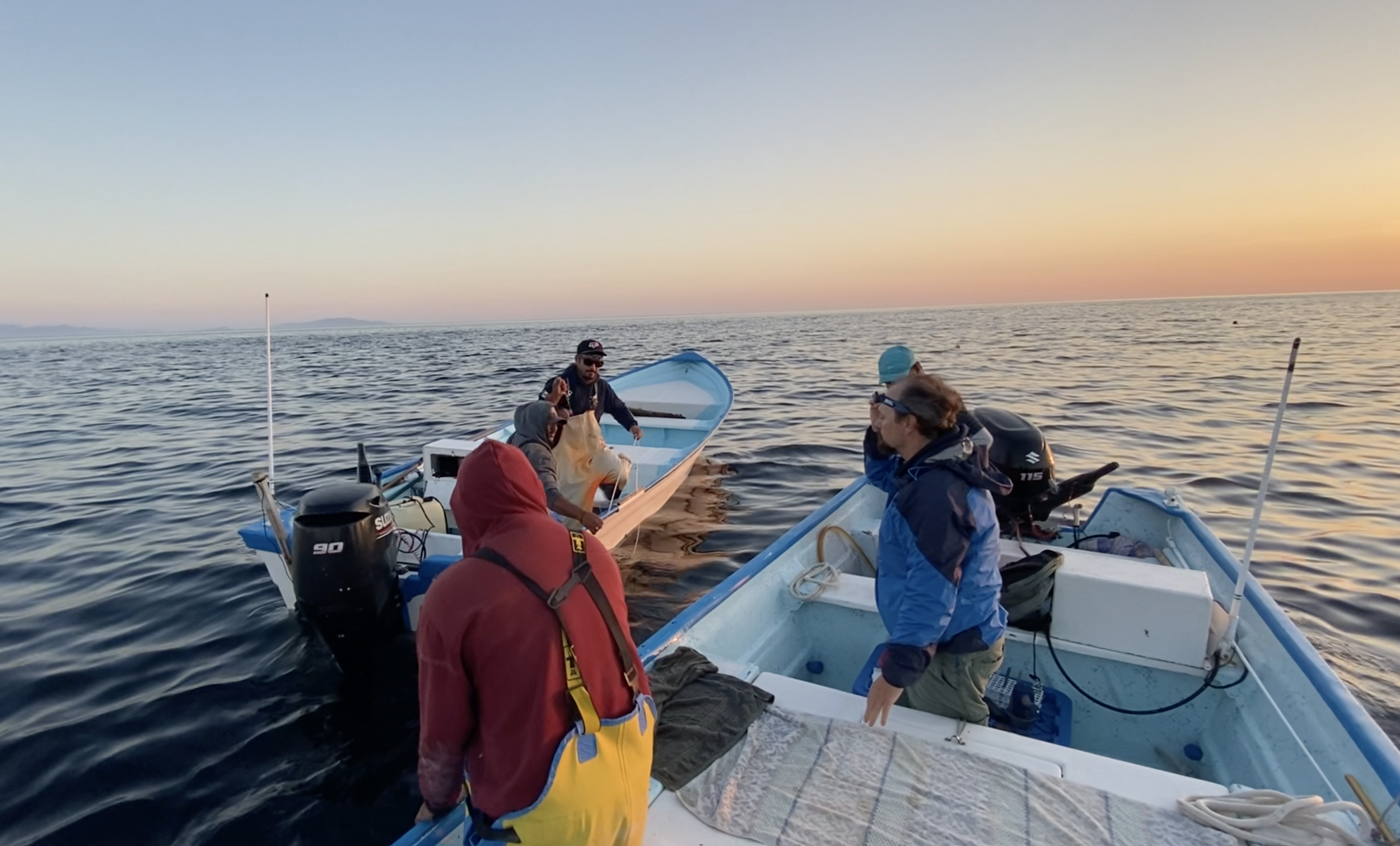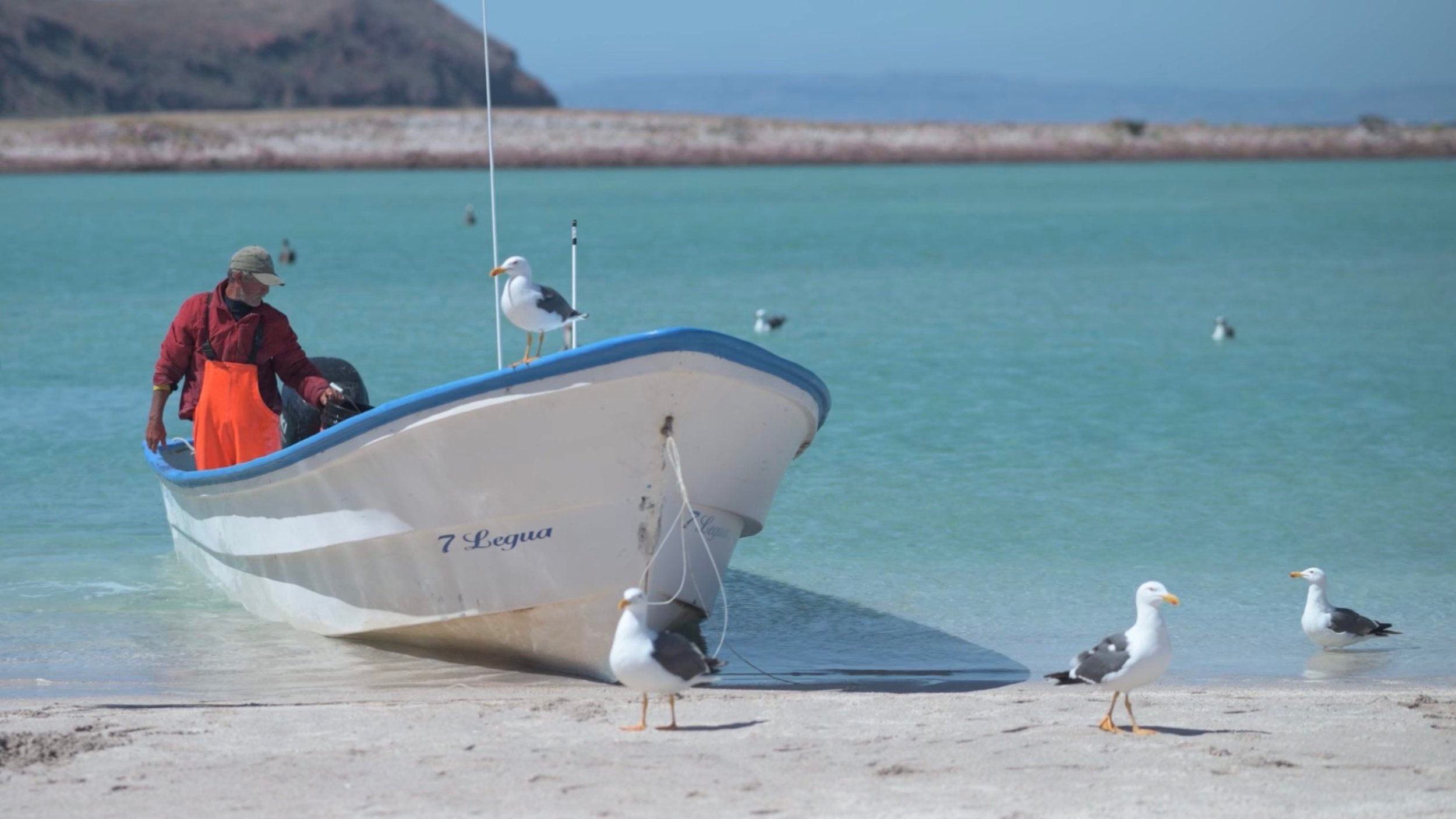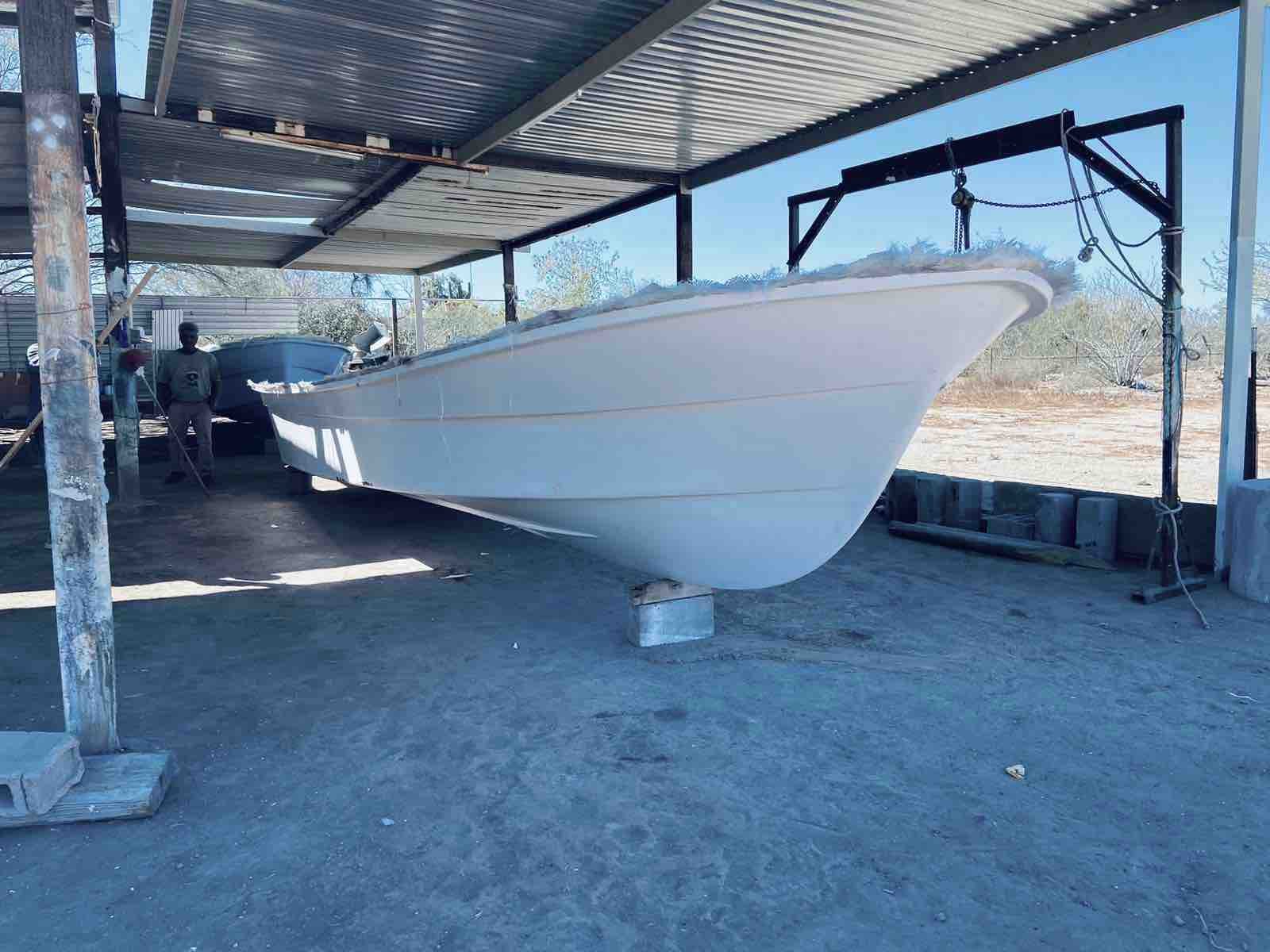Summary
Our project aims to help recover the shark populations and the entire ecosystem of El Bajo de Espíritu Santo, by involving local artisanal fishers in shark ecotourism, research, and surveillance near and around this formerly famous seamount.
Challenge
El Bajo de Espíritu Santo is an underwater mountain ridge jutting out to shallow waters (18 m) from more than 1000 meters in depth. El Bajo seamount was a major hotspot of marine life and biodiversity in the Gulf of California. An area so amazingly full of sharks, giant mantas, yellowfin tuna and other pelagic fishes that it became famous worldwide. It was considered one of the best places in the world to dive with schools of hundreds of hammerhead sharks in the late 1980s. But since then, the abundance of hammerheads and many other species of sharks have plummeted due to intense overfishing. The hammerhead shark population of El Bajo collapsed by the early 2000s, and the species was considered ecologically extinct in this seamount. Nevertheless, after the cascade collapse among shark populations, it was again possible to see some juvenile hammerhead sharks at El Bajo for the first time in 20 years. Thus, the recovery of this incredible ecosystem is still possible, but to help the seamount to fully recuperate we need to take action to protect and conserve the shark populations and the entire pelagic ecosystem of El Bajo and nearby seamounts.
Solution
This project will be directly implemented with the fishing community of La Partida of Isla Espíritu Santo. This community uses traditional hook and line, a highly sustainable and selective fishing method to catch grouper and snapper in deep waters off El Bajo. However, the La Partida fishers are truly concerned by the destruction of El Bajo as it is one of their main fishing grounds. They used to fish for sharks until a few years ago, which represented around 40% of their income, but by witnessing the collapse of shark populations and getting involved in research and conservation, they now want to have a more active role in the recovery of hammerheads and sharks of El Bajo.
Long-Term Impact
This project will help to recover the shark populations and restore the pelagic ecosystem of El Bajo seamount. We hope it will serve as a model to recover shark populations and restore other seamounts and islands in the Gulf of California.
Overarching goal of the project:
We aim to help recover the shark populations of El Bajo seamount from its collapse and near ecological extinction. To accomplish this main goal, we need to carry out shark research and surveillance of El Bajo involving local artisanal fishers. However, these actions need funding.
-Shark research:
The La Partida fishers are the most qualified to catch sharks to perform studies on them, such as telemetry (e.g. acoustic and satellite tracking), genetics (e.g. blood and skin sampling) and others. These studies are necessary to implement effective conservation strategies.
-Surveillance:
The La Partida fishers spend the majority of their time out at sea, hence they are the most experienced crew to carry out the surveillance of El Bajo. Getting them involved in marine conservation will be a tremendous asset to the project by helping reduce illegal fishing in El Bajo, which is now the main cause of degradation of this incredible pelagic ecosystem.
-Recovery of economic loss:
La Partida fishers stopped fishing sharks four years ago and stored away their shark fishing equipment. They have done this despite a loss of 40% of their income, that is, shark fishing represented nearly half of their gross revenue. They currently fish for other species, particularly grouper, snapper, and other deep-water bony fishes. However, the economic loss of the fishers needs to be regained by carrying out other economic activities like shark research and ecotourism. Pelagios Kakunjá is already helping these fishers by hiring them seasonally for research field trips, but this is clearly not enough.
-Switching from shark fishing to ecotourism
The most effective way to ensure a regular and sustainable income is via shark ecotourism. The core of our project is to help the fishers buy a registered panga and start an ecotourism activity during the months with most sightings of hammerhead and silky sharks in the area. This can be a complementary economic activity that could offset their 40% loss in income.
Who is involved:
We are Pelagios Kakunjá, a non-profit organization aiming to study and protect sharks and mantas in Mexico, many of which are globally endangered, mainly due to overfishing. We work directly with local artisanal fishers to study different species of sharks. This partnership has been critical for our research during the last 15 years in the Mexican Pacific.
Who has supported this project?
The general public through a crowdfunding campaign in 2022
The Blue Quest
PUShAUNE
Mark Quinn Newall
SeaWatch
Mission Blue
WWF-México
Ocean Blue Tree
How can you help?
We have been able to build a boat for shark ecotourism, surveillance and research. We still need to equip the boat with accessories (radio, shade, cushions for seats, safety equipment, trailer), and we also need funds for fieldwork.
Your help is key for us to continue with this project!
Choose your own amount: You’re taking part in shark conservation! Every donation will help to carry out this project.
$50 USD: Every gift makes a difference, this helps us get one step closer in funding our project.
$100 USD: We need accessories to finish our boat! This gift will help us buy 3 life jackets for crew and passengers.
$250 USD: Field trips are essential for shark research and conservation. This gift helps us buy gasoline for a round trip from La Paz to El Bajo.
$500 USD: You’re helping to pay fishers for 2 day work during our shark tagging expeditions.
$1,000 USD: We need to tag sharks so we know where they are moving. Your gift will help us purchase 2 acoustic tags for hammerhead sharks.
$5,000 USD: Imagine how important it is to know more about shark movement so we can protect them! Your gift helps us purchase 2 satellite tags for hammerhead sharks.
$10,000 USD: Fieldwork is crucial for our project! Your gift will cover all expenses for a two-week shark tagging expedition to El Bajo de Espíritu Santo.
“Not everyone can do everything, but everyone can do something to make a difference” —Sylvia Earle
“Not everyone can do everything, but everyone can do something to make a difference” —Sylvia Earle
Organization information
Pelagios Kakunjá is a non-profit organization created in 2010 by the Mexican scientists Mauricio Hoyos and James Ketchum. Our main goal is to study and protect sharks and mantas in Mexico, many of which are globally endangered, mainly due to overfishing. We aim to provide technical information for the regional management and implementation of conservation strategies for these species in Mexico. We seek to understand the ecology and behavior of marine predators, to generate baseline information for the management and conservation of sharks and other pelagic fauna in the Gulf of California and the Mexican Pacific.
In 2017, Pelagios Kakunjá together with governing bodies, helped to extend the National Park of the Archipelago of Revillagigedo, creating the largest Marine Protected Area of North America.
Location: La Paz, Baja California Sur, México
Website: https://www.pelagioskakunja.org

